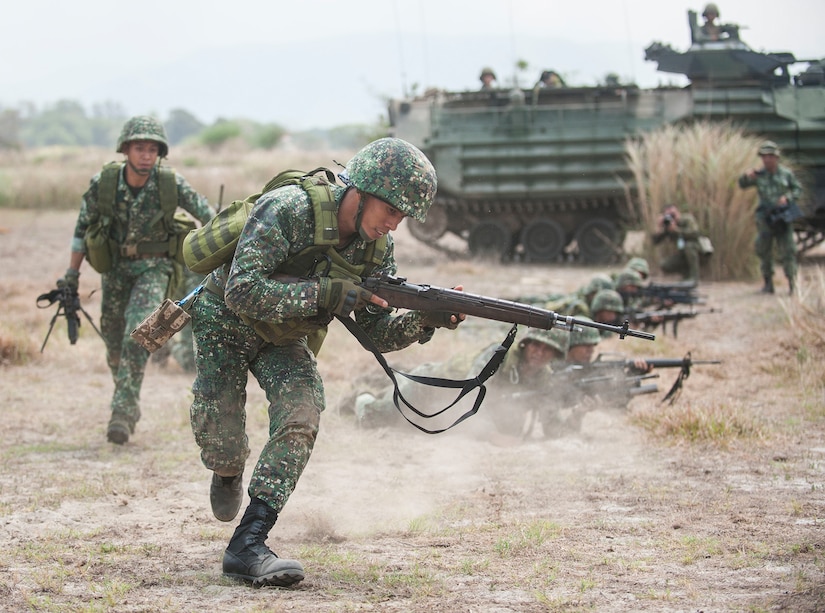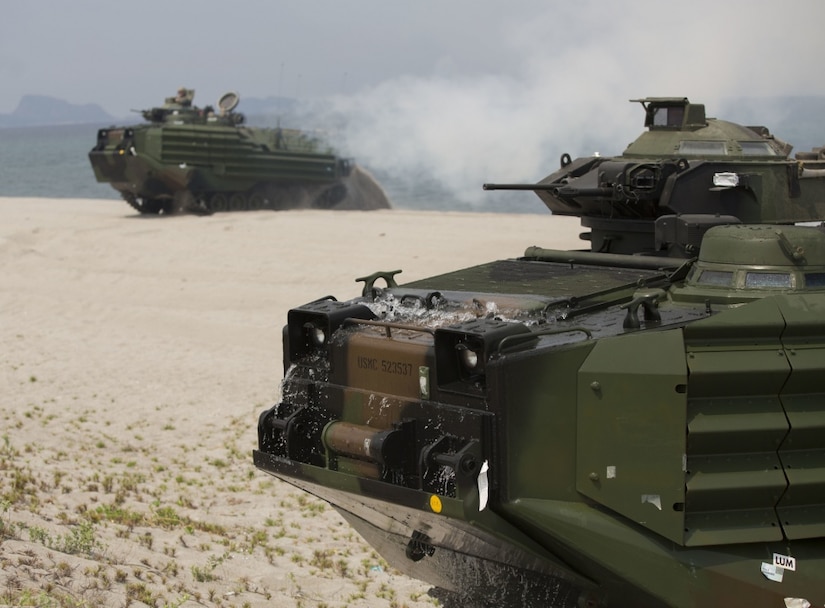CLARK AIR BASE, Philippines -- U.S. and Philippine armed forces work to cultivate strong partnerships between the two nations by exchanging and demonstrating best practices and procedures during exercise Balikatan 2018, scheduled May 7-18 at various locations across the Philippines.
This year marks the 34th iteration of the annual training event focused on a variety of missions including humanitarian assistance and disaster relief, counterterrorism, and mutual defense. This year’s Balikatan also focuses on interoperability training events designed to enhance the combined capabilities of both the Philippine and U.S. armed forces.

‘We Want to be Interoperable’

Philippine marines move into assault positions during an amphibious exercise as part of Balikatan 2018 at San Antonio, Zambales, the Philippines, May 9, 2018. Navy photo by Petty Officer 2nd Class Markus Castaneda
‘We Want to be Interoperable’
“We came to Balikatan because we want to be interoperable with the Philippine military and with our joint counterparts,” said Air Force Lt. Col. John Matuszak, Balikatan exercise coordinator and deputy commander of the 36th Contingency Response Group from Andersen Air Base in Guam. “We learn a lot from each other just by talking and asking questions about how we do things.”
Balikatan is a Filipino term that means “shoulder to shoulder” or “sharing the load together” and characterizes the spirit of the exercise. Over the next several days, both nations will participate in multiple subject matter expert exchanges designed to enhance their capabilities.
“The good thing about these activities is that the subject matter experts in each area give their best practices to their counterparts,” said Philippine air force Maj. Arvin Gundran, operations director of the 600th Air Base Group and Balikatan subject matter expert exchange coordinator for the Philippines.

Cooperation

U.S. Marines and their Philippine counterparts arrive on the beach during exercise Balikatan 2018, in San Antonio, Zambales, the Philippines, May 9, 2018. Marine Corps photo by Cpl. Charles Plouffe
Cooperation
With Balikatan 2018, as in previous years, both nations will benefit from the increased cooperation and understanding during real-world missions.
This process allows us to both learn and teach in areas that we are responsible for, including base security, aerodrome operations and other base services, Gundran explained.
"The 36th CRG has a long history with this exercise and we’ve been coming here for the past two decades," Matuszak said. "We both participate with the intent of learning from each other, and this all builds a certain level of trust. Even if we’ve been gone for months, we can rely on the critical connections we make here."
The exercise is scheduled to incorporate multiple SMEE individuals, including command and control, flight operations, pararescue procedures, combatives and a simulated mass casualty response.

 Download Image
Download Image  Image details page
Image details page
No comments:
Post a Comment
Note: Only a member of this blog may post a comment.